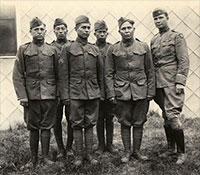

Weekly Specials
Online Shopping; Pickup or Delivery |
|















 Contact Contact 
 Webmail
Letters Webmail
Letters
 News Tips News Tips
 Copyright Info Copyright Info
 Archives Archives
Quick News
Search
 Alaska Alaska
 Ketchikan Ketchikan
 SE Alaska SE Alaska
Columns
- Articles
 Dave Kiffer Dave Kiffer
 Money Matters Money Matters
Historical
Ketchikan
 June Allen June Allen
 Dave
Kiffer Dave
Kiffer
 Louise
B. Harrington Louise
B. Harrington
Ketchikan
Arts & Events
 Ketchikan
Arts Ketchikan
Arts
 Ketchikan
Museums Ketchikan
Museums
 KTN Public
Library KTN Public
Library
Sports
 Ketchikan Links Ketchikan Links
Public Records
 FAA Accident Reports FAA Accident Reports
 NTSB
Accident Reports NTSB
Accident Reports
 Court Calendar Court Calendar
 Recent Filings & Case Dispositions Recent Filings & Case Dispositions
 Court Records Search Court Records Search
 Sex Offender Reg. Sex Offender Reg.
 Public Notices Public Notices
 AST Daily Dispatch AST Daily Dispatch
 KTN
Police Reports KTN
Police Reports
 Juneau Police Reports Juneau Police Reports
Weather,
Webcams
 Today's
Forecast Today's
Forecast
 KTN
Weather Data KTN
Weather Data
 AK
Weather Map AK
Weather Map
 AK Weathercams AK Weathercams
 AK Earthquakes AK Earthquakes

|
|

Saturday
November 11, 2017

|
Pygmy-Owl
According to the Alaska Department of Fish & Game, the Northern Pygmy-Owl in Alaska is found only in Southeast. his species sits on a perch and waits for prey to come by, then pounces down driving its talons into its victim’s neck. Pygmy-Owls are aggressive predators and can kill animals much larger than themselves, although their primary food source is small mammals such as voles and shrews, small songbirds, insects and amphibians. This Pygmy-Owl was photographed November 11, 2017, south of Ketchikan.
Front Page Feature Photo By JIM LEWIS ©2017
|
|
Alaska: Honoring America's Veterans: Native American Code Talkers - With both Veterans Day and Native American Heritage Month in November, now is a great time to tell the stories of the Native American Code Talkers.

Choctaw Code Talkers in France during World War I.
Photo courtesy of the U.S. Army. |
During times of war, secure communications can mean the difference between life and death; victory and defeat. In World War I and World War II, the United States military relied on a unique series of codes to keep its messages safe from the enemy. These codes weren’t based on cutting-edge technology or complex mathematical equations, though. Finding their origins in Native American languages, these codes were spoken by a brave group of men recruited from tribal communities across the country. Those men became known as Code Talkers.
In World War I, soldiers of Native American descent, mostly Choctaw, used their tribal languages to transmit messages by telephone. Though not used extensively, the actions of these men confused the Germans and helped win several battles in France. Approximately 12,000 Native Americans served in the military during World War I.
When the United States entered World War II, the military again called on Native Americans to be Code Talkers. Fearing that some of the previously used languages may have been studied by the Germans and Japanese between the wars, military leaders looked for a new code that was more complex. For the U.S. Marine Corps, the Navajo language quickly became the answer. It isn’t a written language and very few people not of Navajo origin understood it.
In 1942, the Marine Corps began recruiting and training Navajo men to be Code Talkers. Carl Gorman was one of the first Navajo to join up. “For us, everything is memory, it’s part of our heritage. We have no written language. Our songs, our prayers, our stories, they’re all handed down from grandfather to father to children -- and we listen, we hear, we learn to remember everything. It’s part of our training.”
The first 29 Navajo Code Talkers created an phonic alphabet and used word substitution to develop an all but unbreakable code. “Fighter plane” became “hummingbird.” “Turtle” became “tank.” “”Battleship” became “whale.”
Other branches of the military recruited Native Americans from the Assiniboine, Cherokee, Cheyenne, Chippewa, Choctaw, Comanche, Cree, Crow, Hopi, Kiowa, Menominee, Meskwaki, Mississauga, Muscogee, Osage, Pawnee, Sac and Fox, Seminole and Sioux tribes to create similar military codes based on their own languages.
After the codes were established, trained Code Talkers joined combat units around the world. The Navajo and Hopi were assigned to service in the Pacific. Comanches fought the Germans in Europe, and the Meskwakis fought them in North Africa. Code Talkers from other tribes fought at various locations in Europe, the Pacific, North Africa and elsewhere. Because the code was considered to be so important, many Code Talkers were assigned guards and weren’t allowed to move around alone. - More...
Saturday PM - November 11, 2017 |
|
Fish Factor: Southeast Alaska had the state’s largest slice of fishing jobs in 2016 By LAINE WELCH - Fewer men and women went out fishing in Alaska last year, in a familiar cycle that reflects the vagaries of Mother Nature.
A focus on commercial fishing in the November Alaska Economic Trends by the State Department of Labor shows that the number of boots on deck fell by five percent in 2016 to 7,860 harvesters, driven in great part by the huge shortfall in pink salmon returns and big declines in crab quotas.
Fishing for salmon, which accounts for the majority of Alaska’s fishing jobs, fell by 6.4 percent statewide in 2016, a loss of 323 workers.
The only Alaska region to show gains in fishing jobs last year was Southcentral, which includes Prince William Sound and Cook Inlet fisheries, as well as fishing boats out of Homer, Seward and Kenai. All of the region’s fisheries added jobs in 2016, even salmon, scoring the state’s second-highest total employment at 1,661 harvesters.
Southeast Alaska had the state’s largest slice of fishing jobs in 2016 at 29 percent (2,275 fishermen), but that reflects increasing declines for the third straight year. The Panhandle’s harvesting employment dipped 0.8 percent in 2015 and then 2.3 percent in 2016, a drop of 53 jobs.
Fishing jobs at Kodiak fell by 8.5 percent in 2016, erasing the job gains of the few prior years. That reflected a poor salmon season, where fishing jobs dropped 14 percent, combined with slight drops in fishing for pollock, cod and other whitefish.
Bristol Bay, where fishing jobs rely almost entirely on salmon, took the hardest hit last year. The 1,276 permits fished reflect a loss of 133 fishing jobs, or 9.5 percent.
For Alaska crabbers, fishing jobs were down by nearly 19 percent to 464 persons, a loss of 107 fishermen and the lowest level since 2009. That was due to lower crab numbers and a called off Tanner crab fishery in the Bering Sea.
The crab cuts cost the Aleutians and Pribilof Islands more than 122 fishing jobs in 2016, a 7.8 percent decline.
Looking ahead, state economics said reports of record catches and a 67 percent higher payday for Alaska salmon fishermen this year suggests a resurgence in harvesting jobs for 2017, while other catches, such as cod, appear weaker. - More...
Saturday PM - November 11, 2017
|
Alaska: Senate approves criminal justice reform bill; adjournes special session without addressing taxes By MARY KAUFFMAN - After concurrence of Senate Bill 54 yesterday, the Alaska Senate voted to end the Fourth Special Session Sine Die without considering Governor Walker’s revenue proposal, which joined SB 54 as the two items on the agenda for the Fourth Special Session.
Governor Bill Walker issued a proclamation convening the 30th Alaska State Legislature on October 23rd in Juneau for its fourth special session to address public safety and revenue. The administration was proposing a payroll tax of 1.5 percent of wages earned by Alaskans and non-resident workers, capped at $2,200 or twice the previous year’s permanent fund dividend amount - whichever is higher. For example, a person who earned $50,000 would pay $750 in payroll tax and receive a PFD.
The proposal was expected to generate between $300 million and $325 million - about 15 percent of which is projected to come from non-resident workers, who in 2015 earned more than $2.7 billion.
The rules of the Alaska Legislature demand that the Senate return to session if the Alaska House of Representatives does not Sine Die within the next three days.
In a prepared statement Alaska Governor Bill Walker said, “I am deeply saddened that the Senate has decided to again ignore Alaska’s fiscal crisis. After three years of inaction and $14 billion of lost savings, it is the responsibility of the legislature to work as hard as it can to reach agreements that stop this bleeding of public assets, and restore confidence to our economy. Multiple downgrades from credit agencies and stern warnings from the legislature’s own staff emphasize the urgency of the action required. We need a complete fiscal plan to support prosecutors and police, and to pay for some of the policy decisions made in this amended version of SB 54. Alaskans need real progress on this issue.”
Senate Bill 54 passed the Alaska State Senate in April by a vote of 19-1. The Alaska House of Representatives passed the bill by a vote of 32-8. The House version of the bill was sent to the Alaska State Senate for concurrence, which occurred yesterday.
“What we witnessed today by the State Senate was an abdication of their responsibilities. They allowed a constitutionally flawed bill to be sent to the Governor and they worsened the ongoing recession and fiscal crisis by refusing to even consider a new revenue proposal,” said Speaker of the House Rep. Bryce Edgmon.
Edgmon said, “We can force the Senate back to Juneau but apparently we, and the Governor, can’t actually make them work.”
By a vote of 11 to 8, the Alaska Senate concurred with the Alaska House changes to Senate Bill 54. SB54 toughens Alaska criminal laws reversing some provisions of Senate Bill 91 passed in 2016.
Governor Walker said, “Senate Bill 54 gives meaningful tools back to law enforcement and judges to help keep Alaskans safe. However, our work on criminal justice is not yet over, and SB 54 as amended contains some issues that must be further addressed by the Legislature. My administration remains committed to working with the House and Senate to listen to concerns regarding public safety, and ensuring that Alaskans can feel safe in their homes and communities."
"We got the message loud and clear." said Senator Peter Micciche (R-Soldotna). "Alaskans deserve to feel safe. Senate Bill 54 delivers the tools our police and prosecutors say will help them get the job done."
Senate Bill 54 increases jail time for theft from minor shoplifting to car theft, allows offenders to be jailed for violating conditions of their pre-trial release, aggressively fights drug related crime and increases incarceration for assaults against uniformed first responders, like police officers, paramedics and firefighters. - More...
Saturday PM - November 11, 2017
|
TOM PURCELL: Veterans Day by the Numbers - "I had no idea that many men and women have served our country in our armed forces."
"Ah, yes, you refer to Veterans Day facts and figures shared by the U.S. Census Bureau. Did you know there are nearly 20 million U.S. veterans living today? Roughly half are 65 and older. Nearly 2 million are under the age of 35."
"That's interesting stuff. Those older than 65 served in World War II, Korea and Vietnam and the 2 million under 35 served mostly in Iraq and Afghanistan after 911?"
"You are correct. According to statistics released by the Department of Veterans Affairs, World War II vets are dying at a rate of approximately 492 a day. This means there are approximately only 855,070 veterans remaining of the 16 million who served our nation in World War II."
"The greatest generation!"
"My father served in the Korean War. He is 82. Of the 5.7 million who served during that war, 2 million veterans are still with us."
"What about the Vietnam War?"
"Of the 8.7 million veterans who served in that horrific war, 7 million are still alive. To round out the numbers, 5.5 million veterans served during the Gulf War era, which spans 1990 to the present. Roughly 4.4 million veterans served during peacetime. Other veterans had it awfully tough." - More...
Saturday PM - November 11, 2017
 |
DAVE KIFFER: By Any Other Name - It seems we still haven't quite nailed down that group noun to describe the residents of Our Fair Salmon City.
I recently got pulled into the millionth argument over whether to call locals "Ketchikanders" or "Ketchikanians."
Of course, "locals" simply refer to themselves as "locals."
That is in the time honored tradition in which pretty much every indigenous tribe has called itself some form of "the people." Other folks are called something else, but each group seems to call itself "the people." Go figure.
But since it would confuse everyone else if we officially called ourselves "the locals" we end up straining to come up with a collective noun. This isn't our problem alone. Other cities in Alaska find themselves in similarly linguistically fraught straits. Most just add "ites" to their town name and call it good (Juneau-ites, Homer-Ites, Kaktovik-ites). But that doesn't work so well for Fairbank or Yakutat and certainly not well for Utqia?vik. At any rate, it is certainly far too plebian for Ketchikan. - More...
Saturday PM - November 11, 2017
|

Political Cartoon: Veterans Ignored
By Gary McCoy ©2017, Cagle Cartoons
Distributed to subscribers for publication by Cagle Cartoons, Inc.
Veterans Day 2017 By Dan Weber - The world was a dangerous place during World War I. It was even more dangerous during World War II. And, it was frightening enough during the Cold War that ensued. Then came the Korean War and Viet Nam. And, now our valiant soldiers are maimed and die in far away deserts and barren lands as we seek to stem the threat posed by Jihad. - More...
Saturday PM - November 11, 2017
 |
In observance of Veterans Day By Rep. Dan Ortiz - Ninety-nine years ago today, the guns fell silent on the Western Front in Europe, marking the end of World War I. The armistice with Germany had come into effect. Over nine million soldiers were killed in World War I, and another twenty-one million were wounded. After more than four years of warfare marked by death in casualty counts never before seen in modern warfare, the fighting stopped. Armistice Day later became known as Veteran’s Day, when Americans take time to reflect on the myriad of sacrifices made by our soldiers. - More...
Sataurday PM - Nvember 11, 2017
 |
Emergency Room Medical Costs in Ketchikan By Mike Carney - Ketchikan Gateway Borough Residents: From time to time you hear of important issues in the town we live in, this is an issue you should all be aware of. If you have had the unfortunate occasion to visit our emergency room facility at PeaceHealth, it will add insult to injury when you get all the bills. I will tell you my story. I was out hunting and scraped my eye on an alder branch. I tried to wait it out until I could get to the eye doctor. That didn’t happen and I ended up in the emergency room early the next morning. I was dealt with in an orderly fashion and I saw a doctor that I had seen many times before. He is local and works for PeaceHealth. I was there about 40 minutes and I was thankful it was such a quick turnaround. - More...
Thursday PM - November 09, 2017
 |
Criminal Reform By Rep. Dan Ortiz - Earlier this week, the Alaska State House passed Senate Bill 54, “Crime and Sentencing,” with 32 yes votes and 8 nays. Broadly speaking, SB 54 is a partial repeal of SB 91, which was passed last year. Although I did not vote for SB91 at the time, there are some aspects of that criminal reform bill that are worth keeping, for example: programs like pre-trial services and tougher sentences on murder and rape. However, SB 54 makes some necessary changes to SB 91, which I’ve briefly outlined below: - More...
Tuesday PM - November 07, 2017
 |
THE PLAUSIBLE DENIABILITY OF GOD By David G Hanger - Down the road here three dozen miles or so some moron walked into a Baptist church and killed 26 people including 14 children. About 18 hours after the event, i.e. in time for the Monday morning talk shows and news shows it had been labeled “the worst mass killing in a place of worship in the history of the United States.” Within four hours of the event the governor of the state of Texas arrived on the scene and politicized it, then introduced his entourage who each had their little speech to give, followed by first responders, who once again grandiosely performed janitorial services. - More...
Tuesday PM - November 07, 2017
 |
150 years of the Army in Alaska By Capt. Richard Packer - I recently attended the 150-year commemoration of the transfer of Alaska, previously known as Russian America, from tsarist Russia to the United States. The original ceremony occurred in Sitka (New Archangel while under Russian rule) on October 18, 1867, and just like the modern ceremony, the U.S. Army was present for the first ceremony. - More....
Thursday PM - November 02, 2017
Governor Walker’s Tax Proposal Would Create a Regressive Nightmare By Ghert Abbott - Governor Walker is right to champion a broad-based tax, as the only alternative to new revenue is the continued depletion of our state’s savings and further cuts to education, public health, law enforcement, and infrastructure. However, it is essential that any broad-based tax be fairly distributed and take into consideration the sacrifices that ordinary Alaskans have already made with the halving of the PFD. - More...
Thursday PM - November 02, 2017
 |
TAX POLICY IN THE LAND OF OZ By David G Hanger - I realize that only you, the Christian ayatollahs and mullahs of Ketchikan, and your inordinate knowledge and profundity gleaned only in some instances from divinity or seminary school, are the true arbiters of speech, thought, association, and fact, on any subject under the sun, and that you and your spies will continue working in the dark to ensure no one regresses from your expected norm. - More...
Thursday PM - November 02, 2017
Hunting Regulations By Chas Edwardson - Recently I asked on this forum if anyone has heard about stricter hunting regulations for non federally qualified hunters on Prince of Wales Island. - More...
Thursday PM - November 02, 2017
RE: It’s Past Time to Achieve Parity Regarding State Education Funding By Chris Elliott - Mr. Bockhorst hits the nail on the head. - Finis...
Thursday PM - November 02, 2017
Lost fortunes and other dividend crimes By A. M. Johnson - Shocked,I am shocked to think our legislature realizing the results of action this article brings out, had no idea the projected action to extract funds from the Permanent Fund would result in this fiscal loss. - More...
Thursday PM - November 02, 2017
Hunting on POW! By Frances C. Natkong - To you who come to our island to hunt to kill senselessly we have to live here no matter how much you spend coming here. You kill our deer and bear that we live off all year. I've seen deer and bear carcasses with the bear hides gone and the antlers gone all trophy hunters. - More...
Thursday PM - November 02, 2017
 Webmail your letter or Webmail your letter or
 Email Your Letter To: editor@sitnews.us Email Your Letter To: editor@sitnews.us
|
Articles &
photographs that appear in SitNews may be protected by copyright
and may not be reprinted or redistributed without written permission
from and payment of required fees to the proper sources.
E-mail your news &
photos to editor@sitnews.us
Photographers choosing to submit photographs for publication to SitNews are in doing so, granting their permission for publication and for archiving. SitNews does not sell photographs. All requests for purchasing a photograph will be emailed to the photographer.
|
|

















The Local Paper is
available online.
Click here for this week's printed edition (PDF)


|
|
|

![]() Contact
Contact ![]()
![]() Webmail
Letters
Webmail
Letters![]()
![]() News Tips
News Tips![]()
![]() Copyright Info
Copyright Info![]() Archives
Archives![]() Alaska
Alaska![]() Ketchikan
Ketchikan![]() SE Alaska
SE Alaska![]() Dave Kiffer
Dave Kiffer![]() Money Matters
Money Matters ![]() June Allen
June Allen![]() Dave
Kiffer
Dave
Kiffer![]() Louise
B. Harrington
Louise
B. Harrington![]() Ketchikan
Arts
Ketchikan
Arts![]() Ketchikan
Museums
Ketchikan
Museums![]() KTN Public
Library
KTN Public
Library![]() Ketchikan Links
Ketchikan Links![]() FAA Accident Reports
FAA Accident Reports ![]() NTSB
Accident Reports
NTSB
Accident Reports![]() Court Calendar
Court Calendar![]() Recent Filings & Case Dispositions
Recent Filings & Case Dispositions ![]() Court Records Search
Court Records Search![]() Sex Offender Reg.
Sex Offender Reg.![]() Public Notices
Public Notices![]() AST Daily Dispatch
AST Daily Dispatch![]() KTN
Police Reports
KTN
Police Reports![]() Juneau Police Reports
Juneau Police Reports ![]() Today's
Forecast
Today's
Forecast![]() KTN
Weather Data
KTN
Weather Data![]() AK
Weather Map
AK
Weather Map![]() AK Weathercams
AK Weathercams![]() AK Earthquakes
AK Earthquakes










































